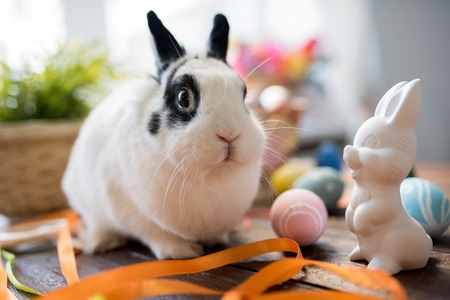Understanding Gerbil Dietary Needs
When it comes to caring for gerbils in the UK, understanding their dietary needs is essential for promoting both their health and happiness. Gerbils are naturally desert-dwelling rodents, and their wild diet consists primarily of seeds, grains, grasses, and the occasional insect. In captivity, it is crucial to replicate these nutritional patterns as closely as possible while adhering to British pet care standards and welfare guidelines, such as those set by the RSPCA and the Pet Food Manufacturers’ Association (PFMA). A balanced diet not only supports healthy growth and activity but also helps prevent common health problems like obesity, diabetes, and dental disease.
Natural vs. Captive Diets
Wild gerbils have access to a variety of foods that provide natural fibre, protein, and essential vitamins. However, domesticated gerbils rely entirely on their caregivers to meet these needs through commercially available or home-prepared diets. British welfare guidelines emphasise providing a varied and nutritionally complete diet to ensure gerbils thrive in their home environment.
Typical Gerbil Dietary Composition
| Food Type | Wild Diet (%) | Recommended Captive Diet (%) |
|---|---|---|
| Seeds & Grains | 60-70 | 60-70 |
| Vegetables & Greens | 10-20 | 15-20 |
| Insects/Protein Sources | 5-10 | 5-10 |
| Fruit (Occasional) | 1-2 | 1-2 |
The Importance of Balance in the British Context
A balanced diet tailored to gerbils’ unique requirements ensures they receive the right nutrients without excess fat or sugar—key points highlighted in British pet care literature. By following local welfare recommendations, such as those from DEFRA and animal charities, owners can help guarantee their gerbils lead long, contented lives. Providing variety within safe food groups not only supports physical health but also encourages natural foraging behaviours, enriching daily life for these small companions.
2. Staple Foods for a Healthy Gerbil
Ensuring the well-being of our furry little companions begins with providing them a diet that reflects not just their natural needs, but also the best of what the UK can offer. In Britain, gerbil nutrition is guided by both scientific research and traditional care, making use of locally sourced ingredients whenever possible. Below, we explore some of the most important staple foods recommended for gerbils in the UK.
High-Quality Lab Blocks
Lab blocks are widely recognised as an essential component in a balanced gerbil diet. These nutritionally complete pellets ensure your gerbil receives all the necessary vitamins and minerals in every bite. British pet supply stores often stock lab blocks specifically formulated for small rodents, which are free from artificial colours and unnecessary additives—making them a safe and reliable choice for daily feeding.
British-Grown Grains
The UK has a long agricultural history, and this extends to high-quality grains that serve as excellent energy sources for gerbils. Locally grown oats, barley, and wheat are commonly included in commercial mixes or purchased separately to supplement a gerbil’s diet. Using British-grown produce supports local farmers while providing your pet with fresh, wholesome ingredients.
Popular British Grains for Gerbils
| Grain | Benefits | How to Serve |
|---|---|---|
| Oats | Rich in fibre; aids digestion | Raw or lightly toasted, unsweetened |
| Barley | Provides slow-release energy | Flaked or whole, plain only |
| Wheat | Packed with carbohydrates for activity | Whole kernels or flakes, avoid added salt/sugar |
Appropriate Seeds Commonly Recommended in the UK
A variety of seeds can be offered to gerbils as part of a healthy and engaging diet. Sunflower seeds (in moderation), pumpkin seeds, and linseed are all popular choices among British owners. Seeds provide essential fatty acids and encourage natural foraging behaviour—a simple act that contributes greatly to mental stimulation and overall happiness.
Seed Selection Tips:
- Opt for unsalted, unflavoured varieties only.
- Avoid overfeeding sunflower seeds due to high fat content.
- Mix different seeds to promote balanced nutrition.
Caring for gerbils in Britain means drawing on both expert advice and local resources. By choosing high-quality lab blocks, British-grown grains, and suitable seeds, you’re laying a solid foundation for your pet’s health—one bowl at a time.
![]()
3. Fresh Foods and Healthy Treats
Offering your gerbil a variety of fresh foods is not only a delightful way to bond but also an essential aspect of supporting their overall wellbeing. In the UK, we are fortunate to have access to a wealth of locally grown, seasonal produce that can be safely enjoyed by gerbils in moderation. However, it is crucial to select the right ingredients and avoid those that may be harmful.
British Fruits for Gerbils
Gerbils enjoy the occasional taste of fruit, but these should be given sparingly due to their natural sugar content. Seasonal British fruits such as apples (seedless), pears, and strawberries are wonderful choices. Always wash fruits thoroughly, remove seeds or pits, and cut them into tiny pieces.
Safe British Fruits
| Fruit | Season | Preparation Tips |
|---|---|---|
| Apple (seedless) | Autumn | Peeled, core and seeds removed, chopped small |
| Pear | Autumn | Peeled, core and seeds removed, chopped small |
| Strawberry | Summer | Washed, stem removed, sliced thinly |
British Vegetables for Gerbils
Fresh vegetables provide valuable fibre and micronutrients. Opt for mild-tasting options like broccoli florets, carrot slices, peas, or small bits of cucumber. Remember to introduce new vegetables slowly and offer only a little at a time to prevent digestive upsets.
Safe British Vegetables
| Vegetable | Season | Preparation Tips |
|---|---|---|
| Broccoli (florets only) | All year round | Washed, cut into tiny pieces |
| Carrot | All year round | Peeled and grated or sliced thinly |
| Cucumber | Summer | Sliced thinly with skin on (in moderation) |
Treats: Occasional Delights from British Pantries
A healthy treat can add enrichment and joy to your gerbil’s day. Tiny pieces of wholegrain toast or oat flakes can be offered once or twice a week. Avoid sugary snacks, chocolate, or anything containing artificial additives.
Treats to Offer Occasionally
- Tiny cube of plain wholemeal bread (toasted lightly)
- A few rolled oats (unsweetened)
Your kindness in choosing wholesome, local foods reflects our shared British values—caring for even the smallest members of our families with thoughtfulness and heart. Always monitor your gerbil’s reaction when introducing any new food and consult with a vet if unsure about suitability.
4. Foods to Avoid: Keeping Gerbils Safe
As we open our hearts and homes to gerbils, it is only natural to want to share the best with them. Yet, some everyday foods found in British kitchens can be harmful or even fatal to our small companions. Here’s a compassionate reminder of common foods and household treats that should never find their way into your gerbil’s dish.
Common Household Foods That Are Unsafe for Gerbils
Many items from our pantry, though seemingly harmless to us, pose real dangers to gerbils due to their unique dietary needs and delicate digestive systems. Below is a helpful table summarising typical British foods to avoid:
Food Item |
Why It’s Harmful |
Common British Examples |
|---|---|---|
| Chocolate & Sweets | Contains theobromine and high sugar; toxic and can cause organ failure | Dairy Milk chocolate, Fruit Pastilles, boiled sweets |
| Bread & Biscuits | High in salt, sugar, and processed grains; causes digestive upset and obesity | White bread, Hobnobs, Rich Tea biscuits |
| Crisps & Salty Snacks | Excessive salt can lead to dehydration and kidney problems | Walkers crisps, Mini Cheddars |
| Citrus Fruits | Highly acidic and upsetting for their stomachs | Oranges, lemons, limes from fruit bowls |
| Dairy Products | Lactose intolerant; causes digestive distress and diarrhoea | Cheddar cheese, milk, yoghurt pots left out after breakfast |
| Onions & Garlic | Toxic compounds that damage red blood cells and cause anaemia | Leftover roast veg from Sunday lunch, garlic butter on toast |
| Raw Beans & Potatoes | Contain toxins that are dangerous if ingested raw or undercooked | Baked potato skins, runner beans before cooking dinner |
| Caffeinated Drinks/Food | Nervous system stimulant; tiny amounts can be fatal for small pets | A drop of tea or coffee from mugs on the coffee table |
| Nuts (esp. Almonds) | Bitter almonds contain cyanide; most nuts are too fatty for regular feeding | Packs of mixed nuts served at gatherings or during Christmas festivities |
A Gentle Reminder: Keep Treats Out of Reach
Please remember: gerbils are naturally curious and may nibble on anything left within reach. Always tidy away human food after meals and keep snack cupboards securely closed. Even foods considered healthy for humans—like grapes or avocado—can spell disaster for a little gerbil. If ever in doubt about a particular food item, err on the side of caution and choose safe alternatives designed for gerbils.
Your Caring Choices Make All the Difference!
Your vigilance in keeping unsafe foods away not only protects your gerbil’s health but also reflects the deep compassion we share as animal lovers across Britain. With every mindful meal you provide, you help your gerbil thrive safely within your loving home.
5. Maintaining Hydration and Good Nutrition Habits
Proper hydration and nutrition are essential for your gerbils’ overall well-being, especially within the UK, where tap water quality is generally high but regional differences exist. Keeping your gerbils healthy means more than just offering food; you must also ensure their access to clean, safe water and establish routines that mimic their natural feeding behaviours.
Hydration: Ensuring Safe Drinking Water
In the UK, tap water is subject to rigorous safety standards set by the Drinking Water Inspectorate (DWI). While most areas provide water that is perfectly safe for pets, you may wish to use a simple water filter if your area has hard water or a strong taste of chlorine. Always avoid giving flavoured or distilled waters, as these can disrupt a gerbil’s delicate balance of nutrients.
Best Practices for Gerbil Hydration
| Tip | Details |
|---|---|
| Use a Bottle | Opt for a sturdy sipper bottle over bowls to prevent contamination and spillage. |
| Change Daily | Refresh water every day, even if some remains, to avoid bacterial build-up. |
| Location Matters | Ensure the bottle is easily accessible but away from bedding to prevent blockages. |
Nutritional Habits: Establishing Healthy Feeding Routines
Gerbils thrive on consistency. Setting regular feeding times—such as morning and early evening—helps them feel secure and mirrors their natural foraging patterns. In the UK, it’s easy to find high-quality commercial gerbil mixes, but supplementing with fresh vegetables and occasional treats keeps their diet balanced and interesting.
Sample Feeding Routine for British Gerbils
| Time of Day | Food Type |
|---|---|
| Morning | Main portion of commercial gerbil mix and fresh veg (e.g., carrot, broccoli) |
| Evening | Small top-up of dry mix and a tiny treat (unsweetened wholegrain cereal) |
A Gentle Reminder
Avoid overfeeding treats such as sunflower seeds or nuts, which are popular in the UK but can quickly lead to obesity. By following local water guidelines and sticking to healthy feeding practices rooted in British standards of pet care, you’ll help your gerbils live happy, active lives at home.
6. Ethical and Sustainable Choices in Gerbil Nutrition
When caring for gerbils in the UK, it’s not only our pets’ wellbeing we must keep in mind, but also the impact our choices have on the environment. As responsible British pet owners, making ethical and sustainable decisions about gerbil nutrition is a reflection of both compassion and a commitment to protecting our beautiful countryside.
Why Choose Ethical and Sustainable Options?
The UK is blessed with a range of local produce and responsible suppliers. By sourcing gerbil food from these outlets, we reduce carbon footprints, support local farmers, and ensure that the food is fresh and free from unnecessary additives. Moreover, ethical choices often mean that farming practices respect animal welfare and environmental standards—a value deeply rooted in British culture.
Local vs Imported: What’s Best for Your Gerbil?
| Option | Benefits | Considerations |
|---|---|---|
| Locally Sourced Foods | Supports British agriculture; fresher ingredients; lower transport emissions | May be seasonal; sometimes higher cost |
| Imported Foods | Wider selection year-round; sometimes more affordable | Higher carbon footprint; less oversight on production standards |
Sustainable Food Choices for Gerbils
- Opt for British-grown grains such as barley, oats, and wheat where possible.
- Select brands that use recyclable or biodegradable packaging.
- Avoid overpackaged treats or mixes with artificial additives.
Forage mixes and seeds produced by UK-based companies often use traceable sources and environmentally friendly practices. By choosing these products, you contribute to a greener future while providing your gerbils with safe and nutritious diets.
Caring for Pets and Planet Alike
The heart of British pet ownership lies in stewardship—looking after those in our care while considering the bigger picture. When sourcing food for your gerbils, ask questions at your local pet shop or check product labels for origin information. Consider joining community groups or online forums where like-minded owners share tips on sustainable suppliers across Britain. Every ethical choice sends ripples of positive change—nurturing both your gerbils and the world they inhabit.


